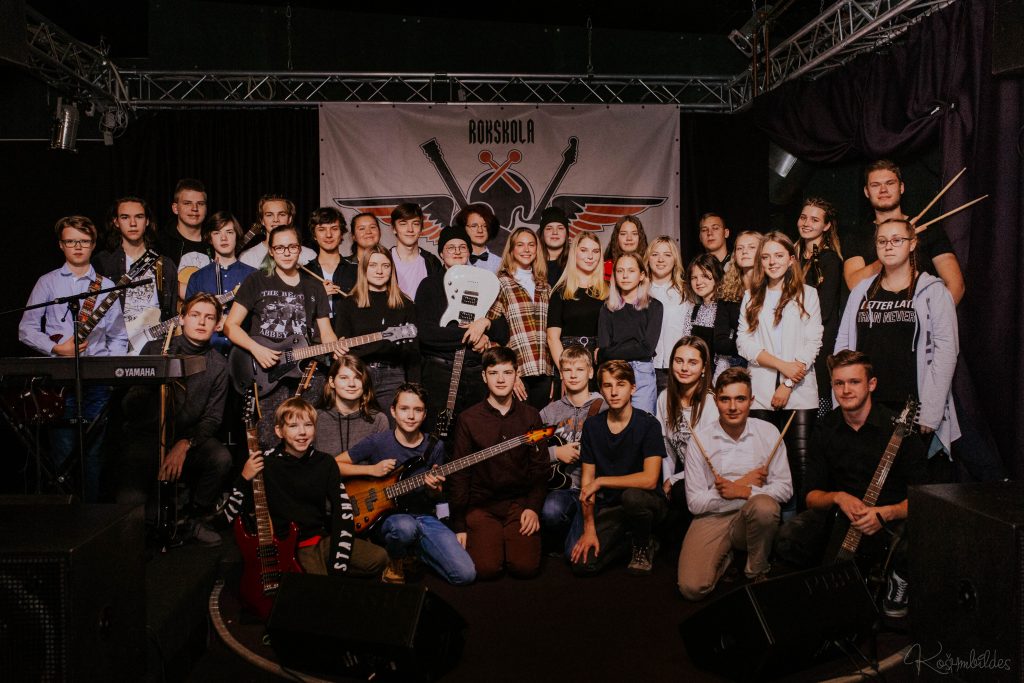BJMK or Children and Youth Music Club (Bērnu un jauniešu mūzikas klubs in Latvian) was founded in 2004 as an NGO, and then a privately owned rock-school was founded additionally in 2008. After the law of social entrepreneurship was implemented, the rock shool applied to gain legal social enterprise status [in Latvia only LLTs are entitled to this].
The uniqueness of the organization is the ability to complement the music education process with opportunities for informal education, meaningful leisure time and recreation, the involvement of children and young people in various events, it is possible to use the BJMK space and the resources to fulfil ones goals.
The goals of BJMK from its beginning in 2004 to today have remained constant. They are – to give the children and youth of Jelgava (or any other city) the opportunity to spend quality leisure time by learning a musical instrument, and to create interest and understanding of music in young people.
During its activity, BJMK has gathered in one place the most talented and friendly teachers of musical instruments and young people who are interested in music and have the desire to learn and develop. There are two ways to learn music and playing instruments at BJMK:
- Attending individual classes or group classes in the interest education format – this offer is available to interested parties of any age;
- By enrolling in BJMK Rock School and learning the vocational education program in parallel with general education (see the Rock School section)

BJMK is a long-standing social economy actor that actively engages the local community and achieves meaningful social impact. Here are a few lessons we can learn from them.
- The concept legally consists of two parts – an NGO and a limited liability company. From the management perspective it shows a great strategic approach for longevity where different legal statuses can be used to fund different streams of activities, broadening the reach too. Their NGO status helps ensuring community activities, but rock-school allows providing professional-level education to the community through an accredited program [note – in Latvia licensed educational institutions usually are not NGOs].
- Social economy consists of the most varied types of business models and ways to bring social change to local communities. Educational institutions are possibly among the most powerful agents for change as they are directly involved in forming the world views, values and personality of the young. And through a consistent and strategic work towards their goals BJMK stands as a great example of the necessary attributes for being a LESE organization.
- Their work, as it should be in social economy, is primarily focused on the learners and empowering them. They explicitly base their educational approaches on individual needs and welcome any member or student to use their resources for bringing the most desired ideas to life, e.g. use the premises and their musical instruments for events, etc. But even more importantly, they have managed to build a sense of community and it proves as a great motivator for involvement and growth.
Their slogan is uplifting and aspirational, which is why this case study can be summarized and concluded with it.
Children’s and youth music club – the wings of your growth!! We will give you wings too!
Get to know other stories from across Europe in the section on Case studies.

